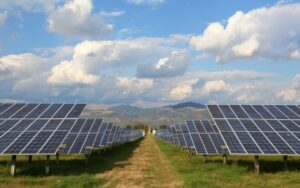Germany’s €20bn hydrogen pipeline network delayed until 2037 as coalition parties agree on financing structure

Germany’s planned €20bn, 9,700km hydrogen pipeline network will be delayed by five years to 2037, after the three coalition parties agreed a new financing framework.
Robert Habeck, the Greens’ deputy chancellor and economic affairs and climate minister, had wanted it to be completed by 2032, but lawmakers from the Social Democrats (SPD), Free Democrats (FDP) and Habeck’s own Green party said the delay would ease the financial burden for operators by allowing extra time for green hydrogen projects to be built that would use its pipelines.
Under a new agreement between the three coalition partners’ parliamentary groups, the network — which would allow the transmission of imported and locally produced H2 to the country’s industrial centres, mainly through converted gas pipes — would be built by the private sector, which would recoup their investments via grid fees.
The government would guarantee a return on equity, before taxes, of about 6.7%.
However, in “the unlikely scenario that the core network ramp-up fails”, operators would have to shoulder 24% of the costs, with the government liable for the remainder, the agreement explains.
But if one of the network’s operators goes bankrupt, the other operators would not be financially liable.
Article continues below the advert
The government will also set up an “amortisation account” to cover the network’s construction costs, which would be gradually paid back by the operators before 2055.
This agreed financial framework will be included in the third amendment to the Energy Industry Act, which will now be passed to the relevant parliamentary committees, and it could be approved by the Bundestag as soon as next week.
“The parliamentary process has succeeded in strengthening investment security for the ramp-up of the hydrogen core network, which also offsets insolvency risks,” said Nina Scheer, climate protection and energy policy spokesperson for the SPD parliamentary group.
“With the amortisation account model created by the law, financing burdens can be stretched.”
The energy policy spokesperson for the FDP parliamentary group, Michael Kruse, added: “We have achieved that the core network is being built privately and are now creating attractive investment conditions for the industry.
“I am particularly pleased that we have already reduced bureaucracy in the legislative process by abolishing extensive reporting requirements. These are important steps on the way to making Germany the leading hydrogen nation.”
The German public utilities association, VKU, described the agreement as “an important step for the ramp-up of the hydrogen industry because all players need planning and investment security”.
But it added: “Regardless of what the agreement looks like, the financing must be sufficient for investments in the core [hydrogen] network. So the litmus test will be whether or not actual investment decisions are made on the basis of the agreement.”






